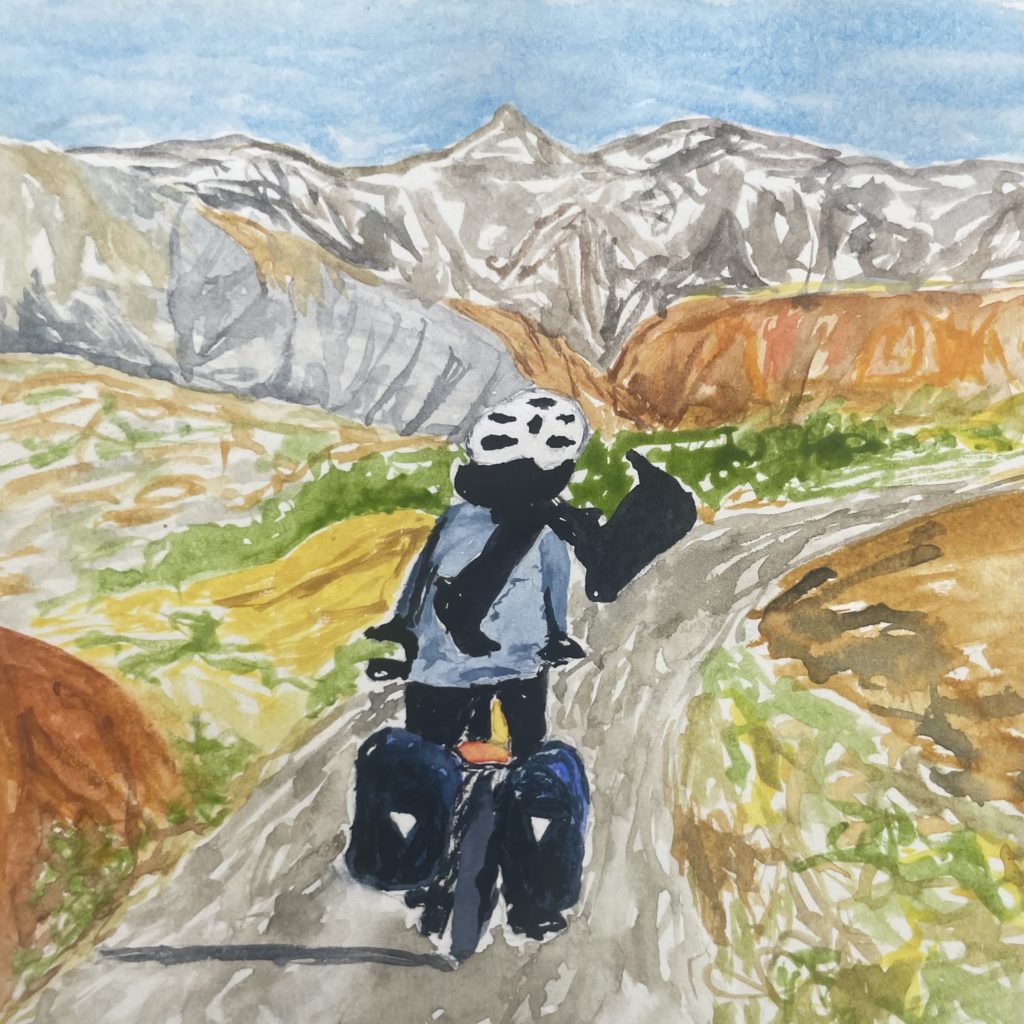
We were cycling downhill on a gravel road, and the headscarf I wore under my helmet was blowing in the wind. In the morning, we dressed appropriately—long pants and long, loose shirt—and I added a headscarf on the bridge after officially leaving Armenia and before entering Iran. We had crossed the border into Iran around lunchtime without any issues. Despite having our luggage scanned twice (once when leaving Armenia and again upon entering Iran), a brief interview about Thomas’ camera and what we were doing, and exchanging money with a man, carefully counting roughly 300 bills and their zeros to ensure we received the correct 47 million rials for our 100-dollar bill (based on the official exchange rate, not the semi-official free market rate of 62 million, which we would get later), we were through in less than an hour. Afterwards, we were cycling through stunning mountains, far from civilization. My hair is too short to catch much wind under my helmet, but the scarf is longer, and I watched it joyfully playing in the wind. We made it to Iran, and it felt great!
Even in these remote mountains with few cars, we still drew a lot of attention. People waved from their cars, shouted “Welcome to Iran,” asked where we’re from, and smiled at us warmly. Although there is no legal prohibition against women cycling in Iran, there is a fatwa (an Islamic ruling by religious scholars) that forbids women from cycling in public. So, there must be at least some who disapprove of our presence and my cycling. However, we didn’t encounter any of them. Whether it’s because they remain silent, have different rules for foreigners, are less present in the more progressive northwest compared to other parts of the country, or perhaps because many had traveled to Iraq for Arba’een, or maybe we were simply fortunate to only meet the “95% of the population that doesn’t support the current regime and its laws,” as people have repeatedly told us—we encountered no one who seems displeased. Instead, everyone appeared genuinely delighted to see us cycling through their land and by the simple fact that we had come here.
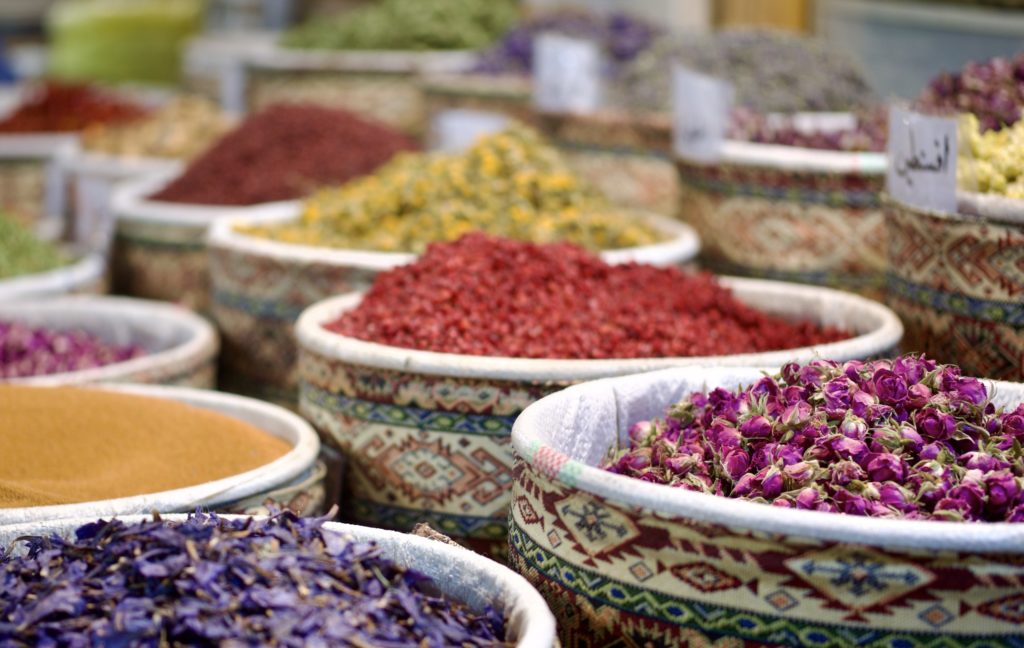
We cycled from the Armenian border to Tabriz, stopping at a lovely hostel, and then over the mountains to Rasht and the Caspian Sea, from where we took a taxi (as all the buses were in Iraq for Arba’in) to Tehran. Along the way, we were often stopped, blessed with fruit, or invited for tea. One occasion that particularly stuck with me was when three siblings invited us for coffee and fruit from their car. They were returning from Tabriz, where they grew up, and had chosen to avoid the faster route to Tehran, instead driving through this more remote valley they used to visit often with their late father.
All three were delighted to meet us and serve us food. The two women became nostalgic and visibly moved by our presence in their cherished valley. One sister struggled to hold back her tears and eventually found rescue back in their car, while the other, Maryam, handed me a piece of paper with her phone number. Their emotions and heartfelt kindness moved me deeply, and our brief encounter stayed with me for much of the day. Unfortunately, I was never able to reach her and so they remain a precious memory from our time on the Iranian roads.
Nowhere since we left the EU have I felt women as present as here, and nowhere have I had more heart-touching encounters with other women—sometimes accompanied by conversations during invitations by the roadside or deep insights into family life at someone’s home, and sometimes as brief as eye contact through a car window, expressing and connecting more than words ever could.
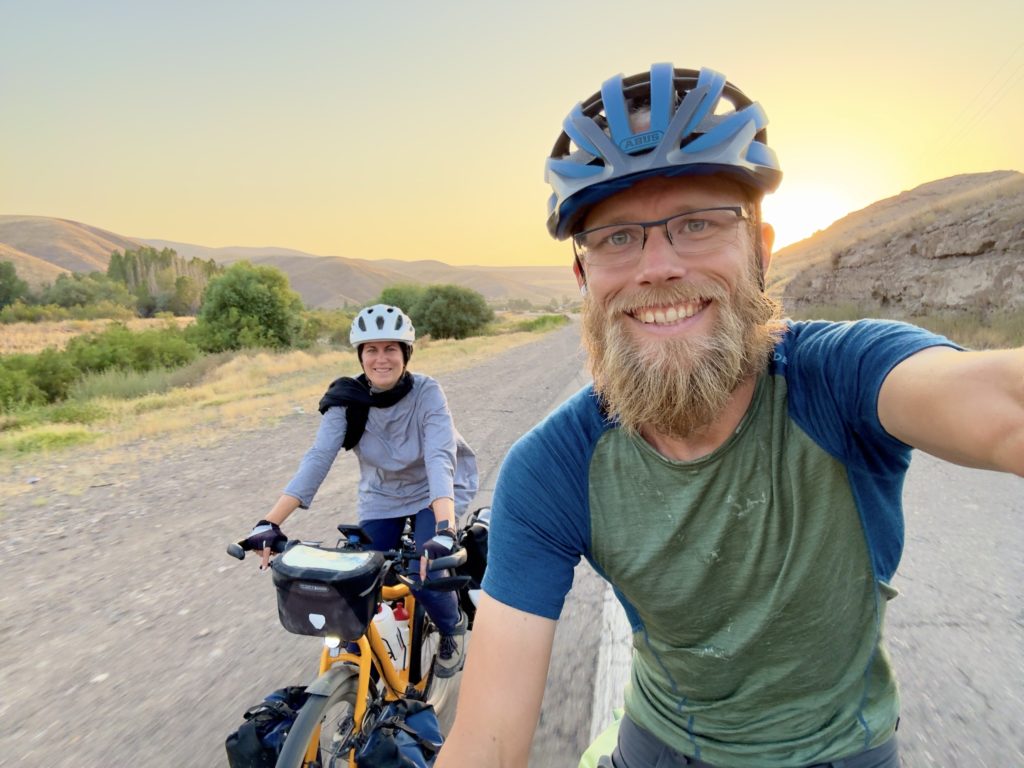
At this point, I want to express my gratitude for a simple piece of cloth—a farewell gift from my mother, who managed to transform her initially overwhelming worries into loving practical support. This black silk cloth is incredibly lightweight, packs down small, and is multifunctional. I wore it as a dress on Samothraki in Greece, Thomas used it as a blanket in Turkey, and now I’m wearing it as a headscarf in Iran. It dances beautifully in the wind, and it’s thin enough that I can still see through it when the breeze blows it across my face. Most importantly, this piece of cloth allows me to visit this beautiful country, with its extraordinarily warm and welcoming people.
Don’t get me wrong—I have no intention of belittling any woman’s struggle for freedom or opposition to the hijab law, which obliges all women in Iran to wear a headscarf in public, by expressing my own joy at watching my headscarf dance freely in the wind. I can see their pain, and even more so, their strength and determination. I admire their courage. Emancipation is complicated enough in Europe, but it’s entirely different in a country where it is not safe to do so.
The longer I’ve been here, the more fascinated I’ve become by the many ways women express themselves through their headscarves or creative alternatives—how they attach them, constantly readjust them to fit the situation, or sometimes let them slip back. Each woman seems to find her own way to navigate the balance between the law, societal and familial expectations, the risk of non-compliance, and her own personal convictions.
It makes me appreciate what an enormous gift freedom is and how grateful I am for my own freedom—not having to conform to strict dress codes or wear a headscarf in my everyday life, but also the freedom to come here and wear a headscarf when necessary while still, despite all the rules and restrictions, doing what I love—cycling. And so, while cycling, I am at peace with my own search for how to be an emancipated woman in this modern world. The question of how to adapt to the local circumstances feels far away.
It’s only when we stop and leave our bikes behind that I feel my own struggle to balance my desire to respect and honor the traditions and particularities of other countries (even if I don’t fully understand or agree with them) with my solidarity for the women who are sacrificing so much for their freedom. My own pragmatic solution: the 30th percentile. If roughly one in three women is covered less, and the other two-thirds are covered more, then I feel both on the safe/respectful as well as on the „right“ side of the balance.
Anecdotes
Tabriz: We successfully made it out of Tabriz, navigating through all the traffic, and were cycling along a main road out of the city when a motorbike raced after us, passed, and nearly forced Thomas to stop. The rider, Amir, invited us to his restaurant and mentioned other cyclists he had “caught” on the highway. It seemed too early for a break, but Amir was persuasive, so we followed him back to his restaurant. There, we were pampered with cold drinks, chai, and a second breakfast/lunch that, despite not being particularly hungry, was absolutely delicious.
Amir showed us a picture of another cyclist from Switzerland who had visited earlier this summer. As we looked at the picture, Thomas said to me, “It’s not Jan—that would have been funny.” Thomas and Jan had met while cycling to the northern tip of Norway after both had finished their PhDs at ETH in Zurich. They stayed in touch, and by chance, we found out that Jan was planning a very similar trip this year, riding about a month ahead of us and passing through many of the same cities. We talked some more, and then Amir showed us another picture of a Swiss cyclist—and this time, it was Jan!
Givi: One of those “ups and downs”: After a great morning, a lunch with little peace but a gifted takeaway dinner for the evening, an afternoon of belly pain, terrible headwinds, and a steep ascent, we were given a watermelon, found a camp spot with rock-hard ground but hidden from the road, and broke a tent peg while trying to anchor it. It was a noisy, windy night, but we had the watermelon for breakfast. Another exhausting day followed, with more climbing, more headwinds, and the disappointment of having no energy left to celebrate our three months on the road. All we wanted was for the day to be over.
When we reached Givi in the evening, we were hoping the hotel listed on Google Maps existed—but it didn’t, or at least it wasn’t a hotel. Just as we realized this, a car stopped beside us, and the driver asked what we were looking for. Almost immediately, he invited us to his family home, where we could stay the night. Suddenly, the day completely turned around, and we were overwhelmed by their hospitality. Our hosts invited us to dinner, offered tea and fruit from their garden, and we spent the evening discussing Iran, studying in Germany, and a potential visit to Switzerland. Thank you again for saving us from an exhausting search and the lovely evening together.
Khalkhal: We first met Sarah and Tobi at the hostel in Tabriz and caught up with them again in Khalkhal, at 1800 meters, the only place in Iran where people didn’t complain about the heat. Together, we cycled over the final pass and descended towards the Caspian Sea. When we reached the pass, it felt like we had entered a different world. The good weather disappeared, and suddenly it was cold and rainy, as though we were cycling inside a rain cloud rather than beneath it.
Back at sea level on the other side of the mountain range, the rain had stopped, but the humidity lingered, and the temperature was high again. The landscape had transformed into a tropical setting, with rice paddies and wild gardens lining both sides of the road. Both Thomas and I couldn’t shake the feeling that we had been transported to Thailand.
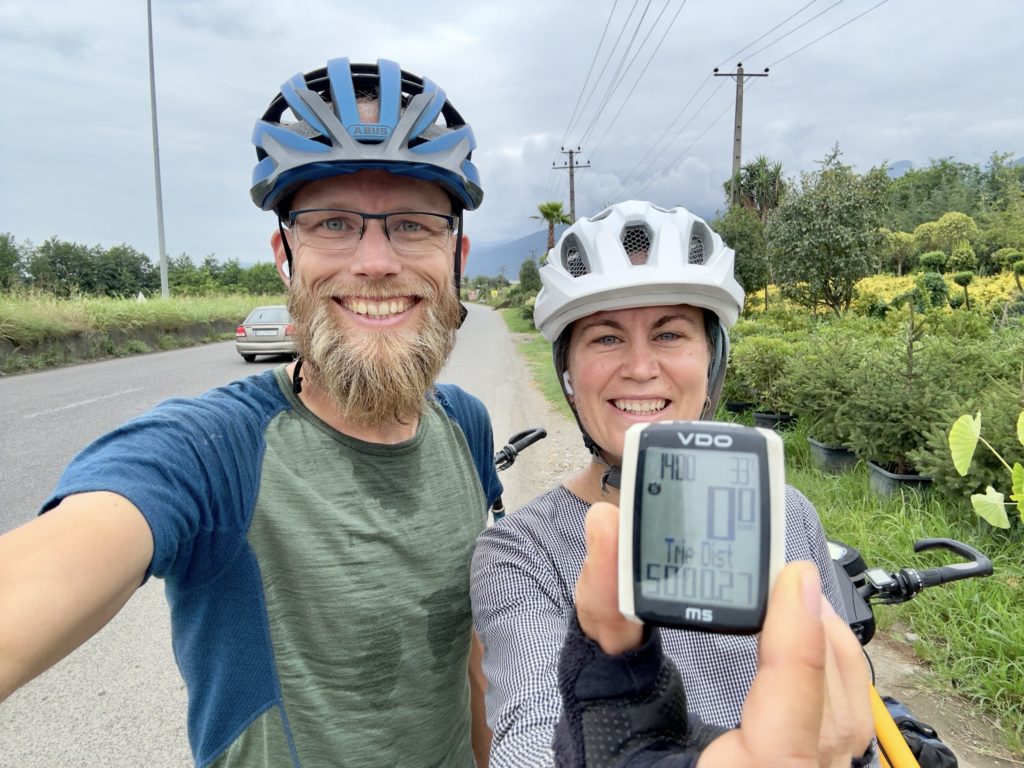
Rasht: I was hungry—really hungry. We had just waited over two hours in the hostel for our laundry to finish. I couldn’t leave before it was done because all my clothes that conform to the hijab were in the machine. But now it was finally done, and we could leave. The “manteau” I put on was still wet from the washing machine, but I didn’t care. I was hungry.
We had found a falafel place that seemed to serve only falafel, which we took as a good sign. Google, however, had been unreliable since Turkey, to the point of being almost useless. Shops and restaurants would often appear on the map but not exist physically, or they’d be there in reality but missing from the map. Despite this, we had no better alternative (apart from keeping our eyes open or asking locals, and still possibly not finding what they described), so we took our chances once again.
When we arrived at the designated street, there was nothing—not even a closed shop, just a wall. As we stared at the wall and our phones, trying to find another option, I saw out of the corner of my eye a van carefully parking on the street. The driver got out, slowly transforming his van into a falafel shop. It took some time—enough time for us to visit a travel agency—but finally, an hour after Google’s listed opening time, our falafel place appeared, exactly where Google said it would be.
Rasht hostel: I had to go to the toilet, but I couldn’t. Not because the toilets were occupied—there were still empty ones—but because the bathroom slippers were in use. In Iran, there are different slippers: for outdoors, indoors, the kitchen, and the bathroom. Every time you step from one area to another, you need to change into the appropriate slippers. All good, we can get used to that (after a couple of beginner’s mishaps, of course), but with just three pairs of bathroom slippers for six toilets here in Rasht… really?!
Caspian Sea: After greeting the not-so-spectacular Caspian Sea, we took advantage of being “millionaires” in this country and opted for a pretty fancy hotel. We had a late afternoon pizza in another town before arriving at the hotel, but what really excited us was the broccoli we had found at the bazaar in Rasht. So, we decided to skip the fancy hotel restaurant and have a broccoli dinner—cooked on our camping stove in our fancy hotel room.
Tehran: The food in Iran was truly amazing. Although kebab is very popular, especially when dining out, with some effort we were often able to find great vegetarian options. Plus, the bazaars are filled with delicious fruits, nuts, and dried fruits. Some of the best vegetarian meals, however, aren’t found in restaurants but in people’s homes. We were lucky to experience this in Tehran, where our hosts spoiled us with generous hospitality and amazing home-cooked meals. Thank you again—you’re always welcome at our place in Zurich!
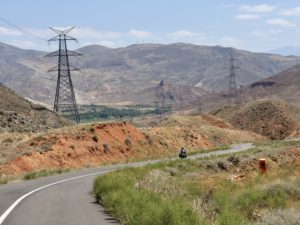
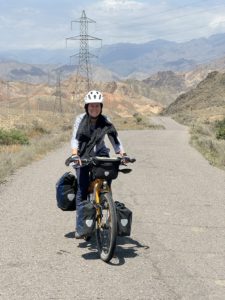
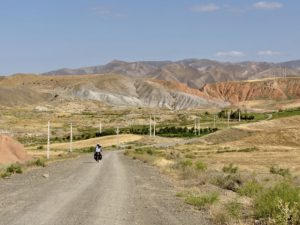
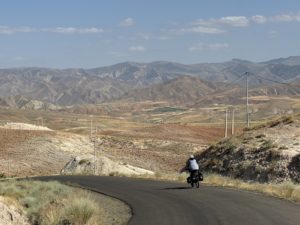
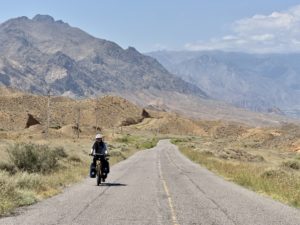
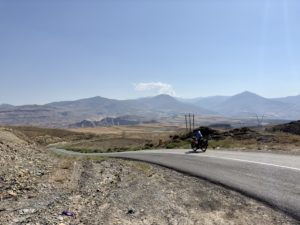
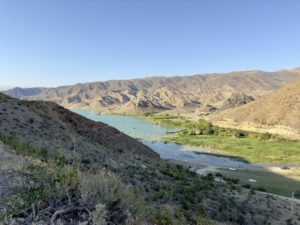
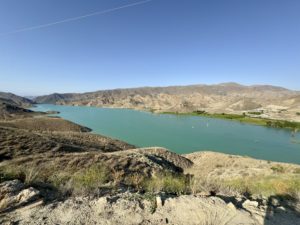
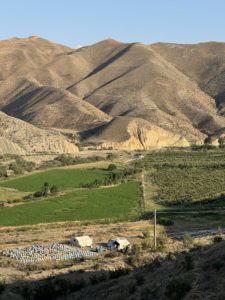
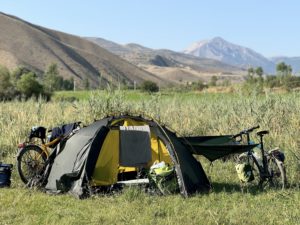
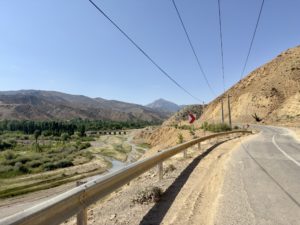
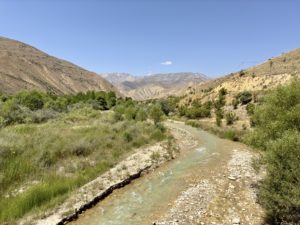
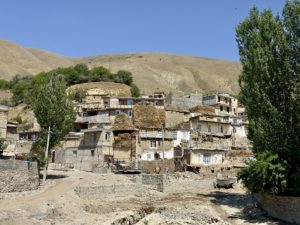
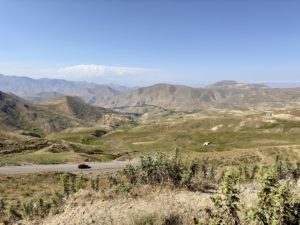
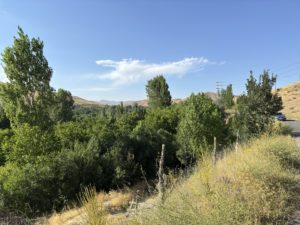
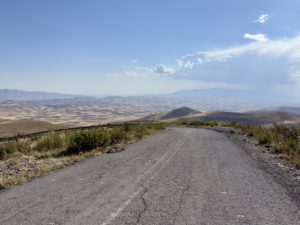
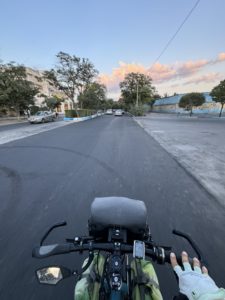
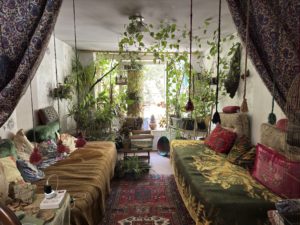
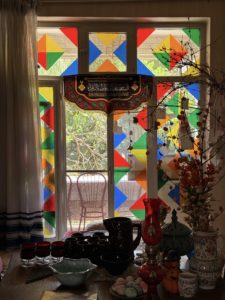
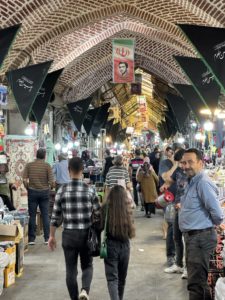
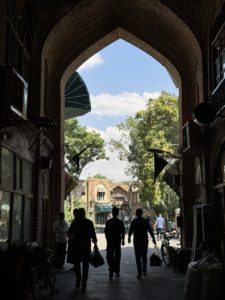
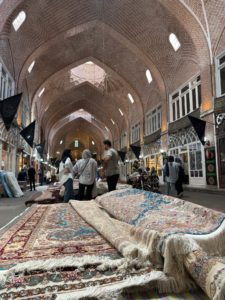
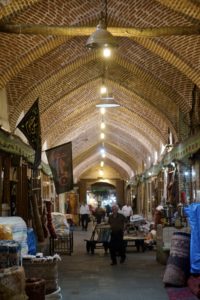
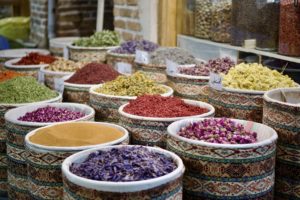
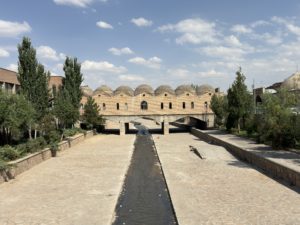
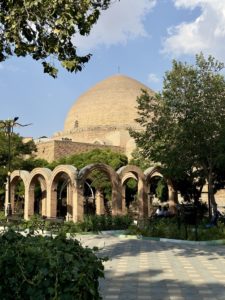
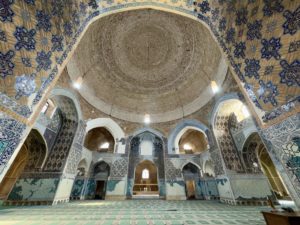
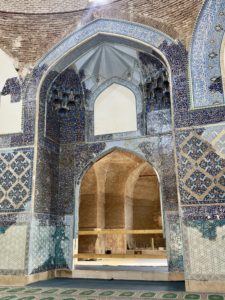
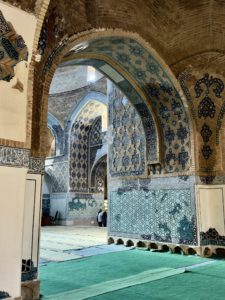
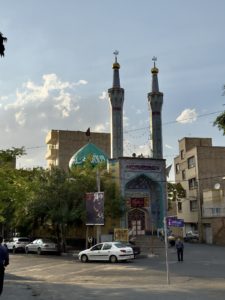
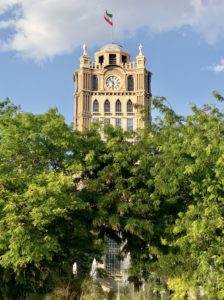
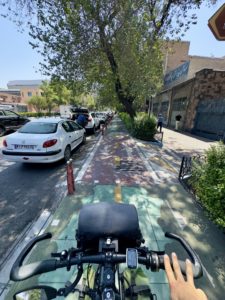
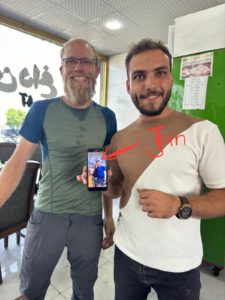
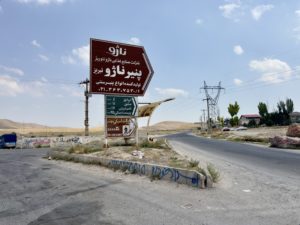
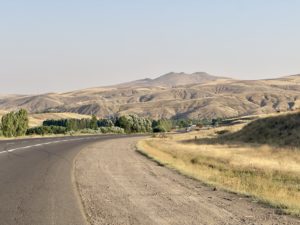
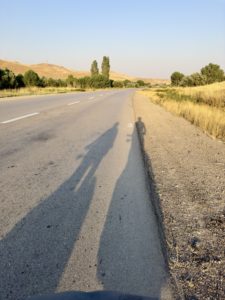
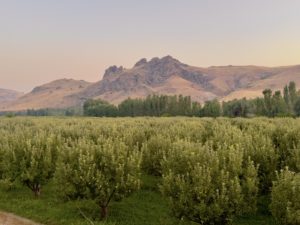
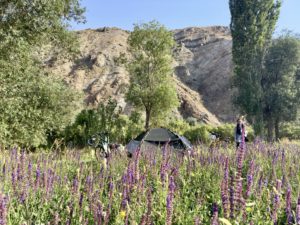
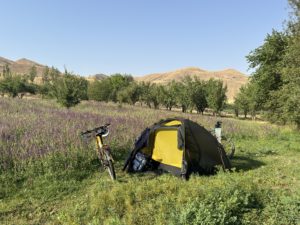
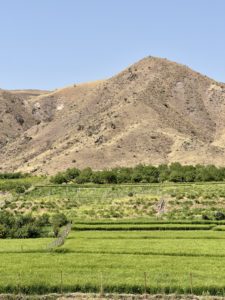
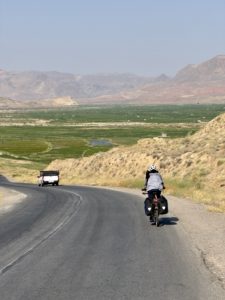
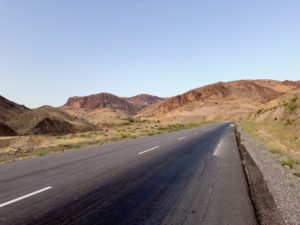
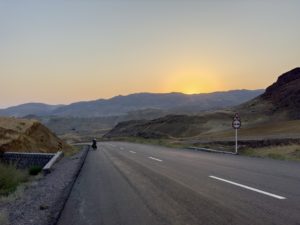
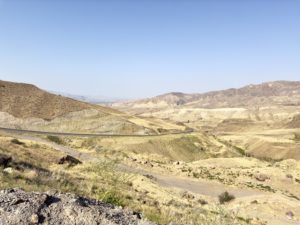
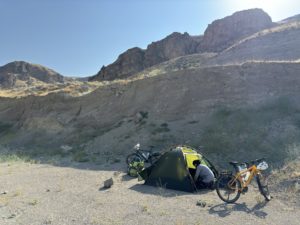
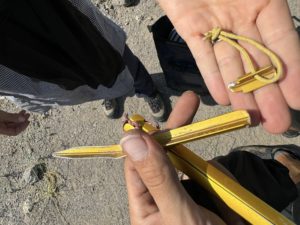
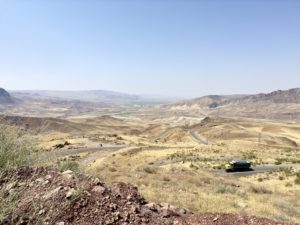

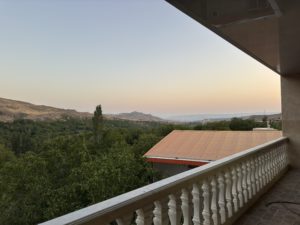
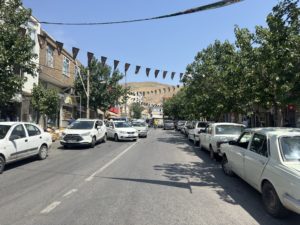
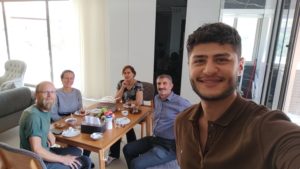
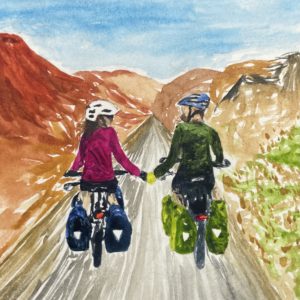
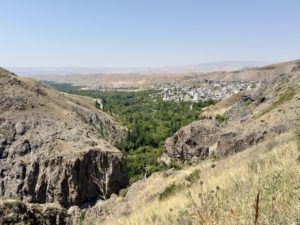
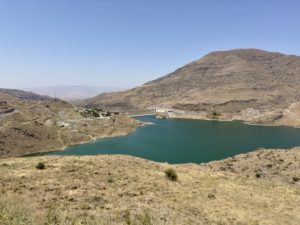
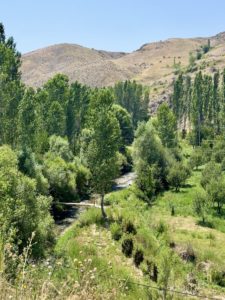
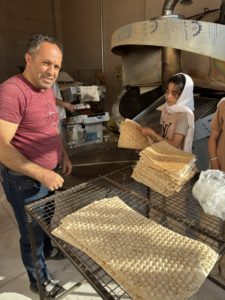
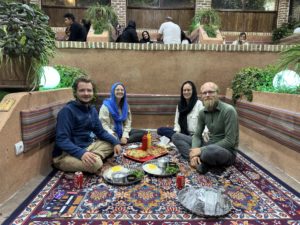
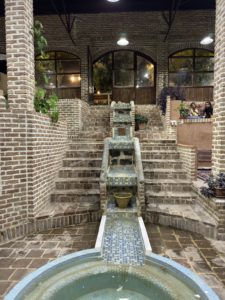
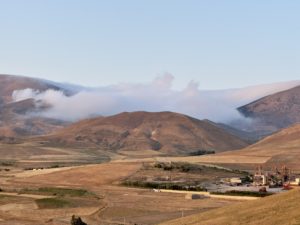
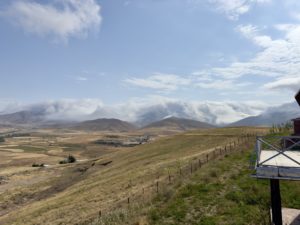
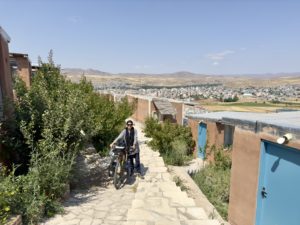
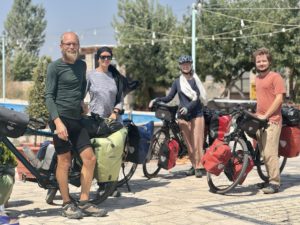
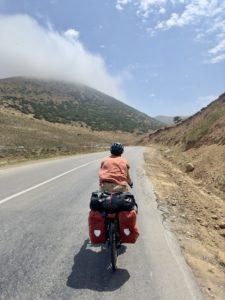
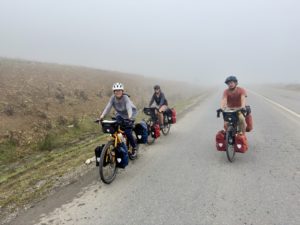
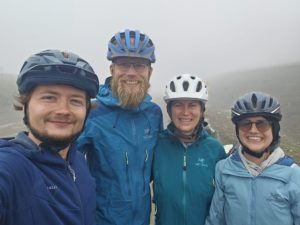
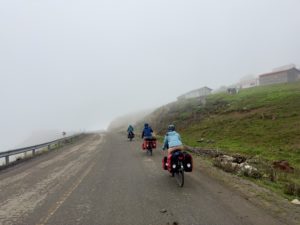
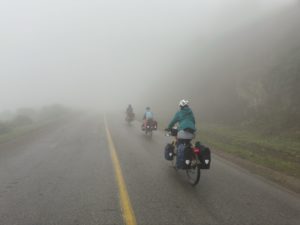
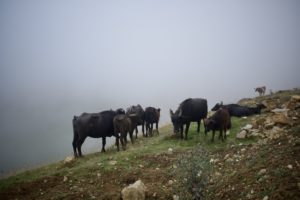
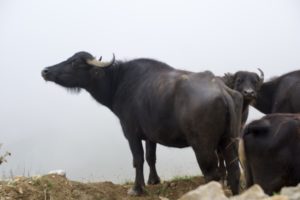
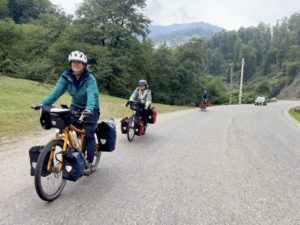
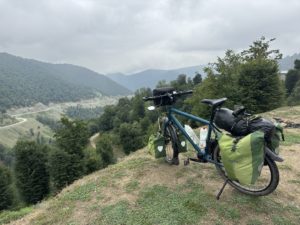
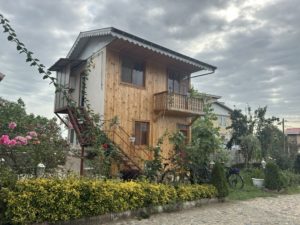
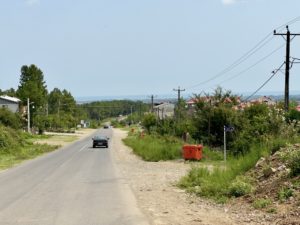
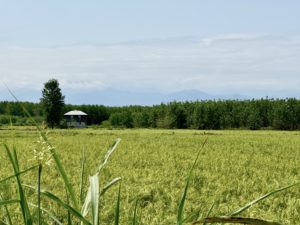
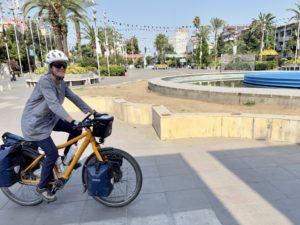
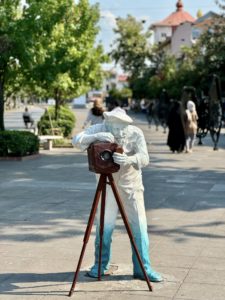
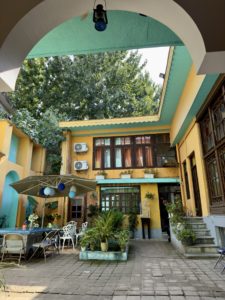
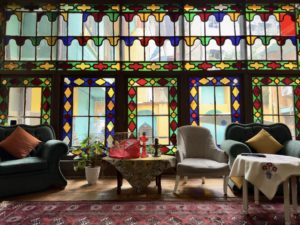
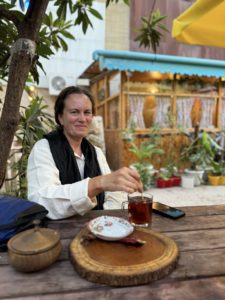
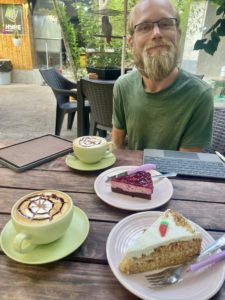
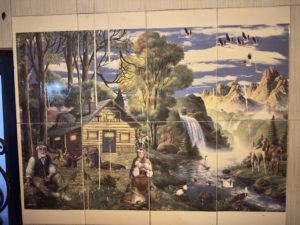
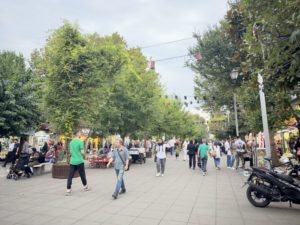
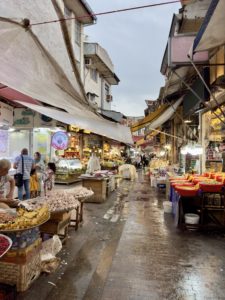
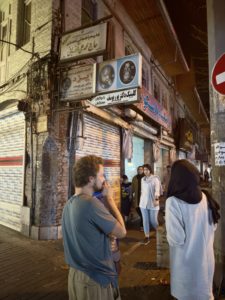
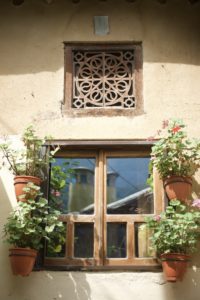
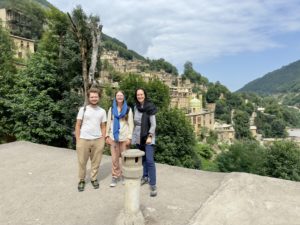
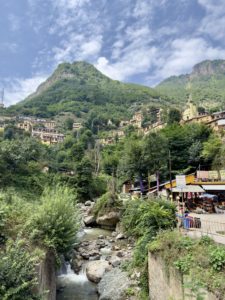
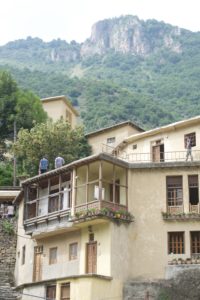
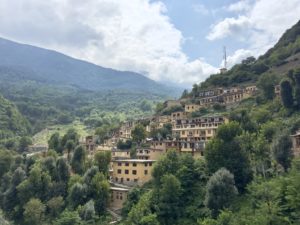
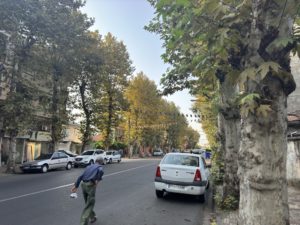

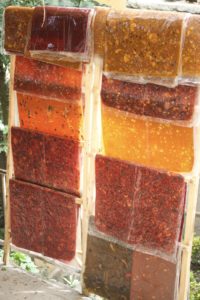
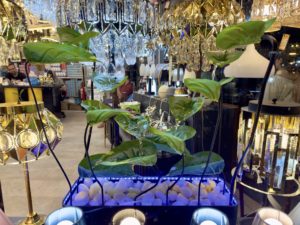
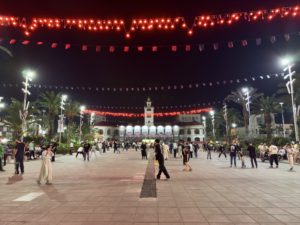
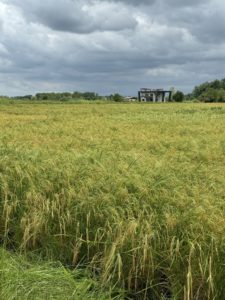
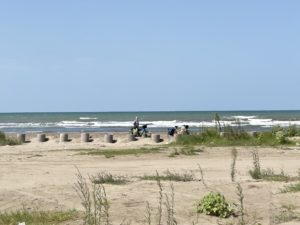
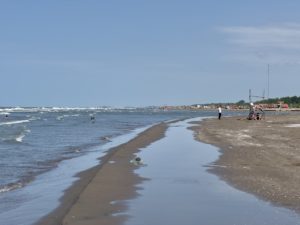
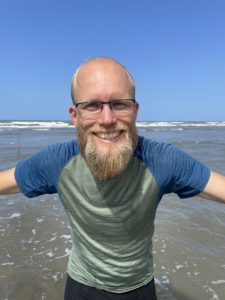
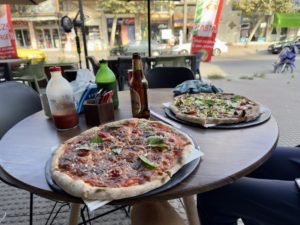
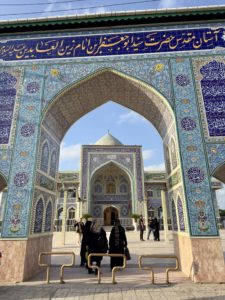
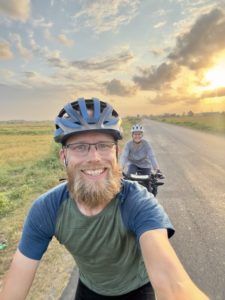
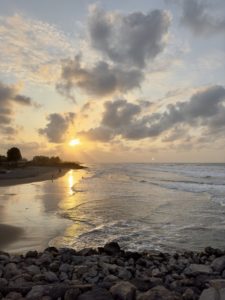
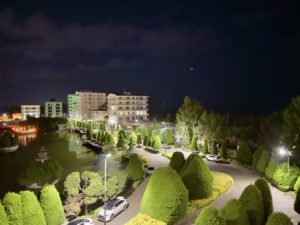
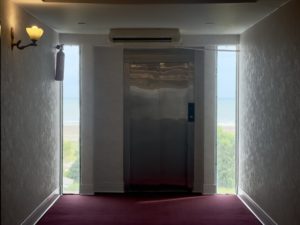
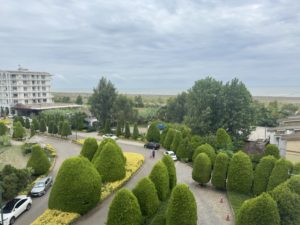
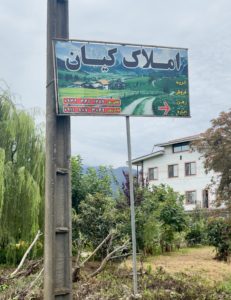
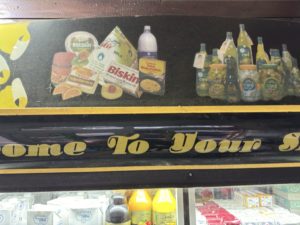
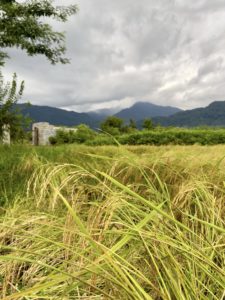
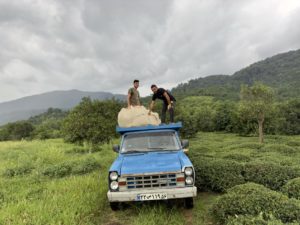
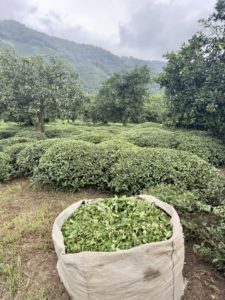
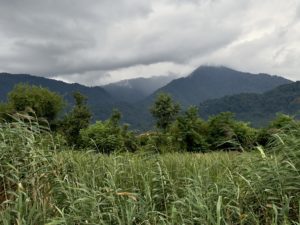
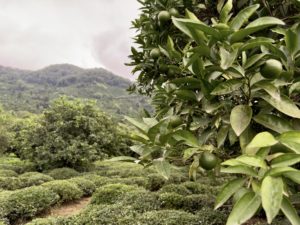
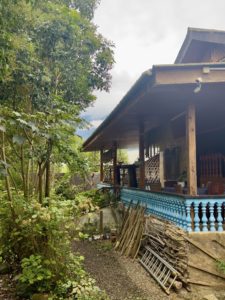
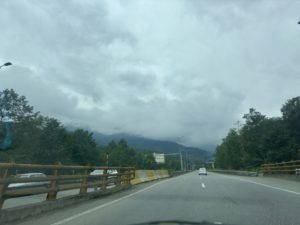
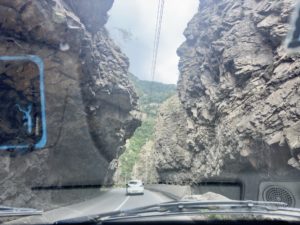
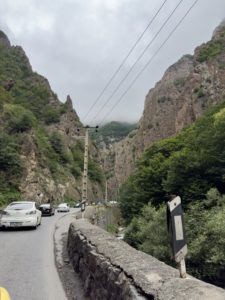
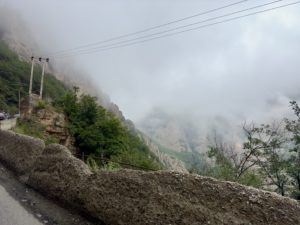
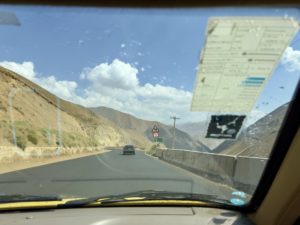
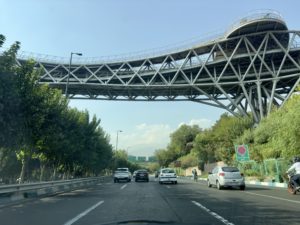
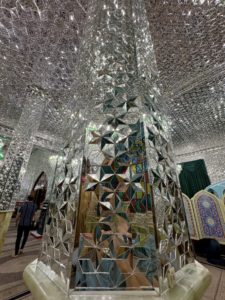
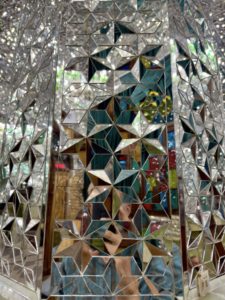
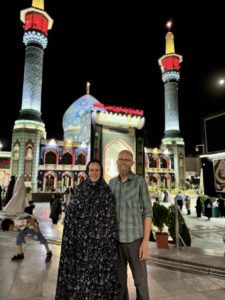
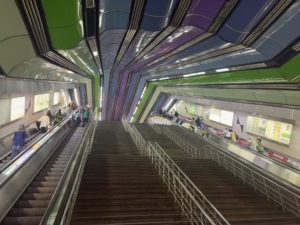
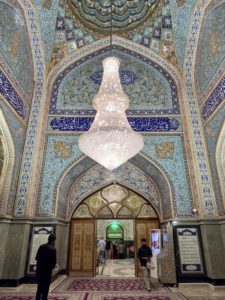
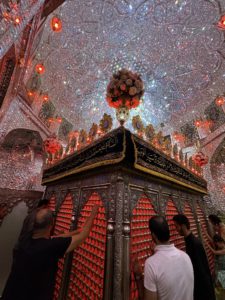
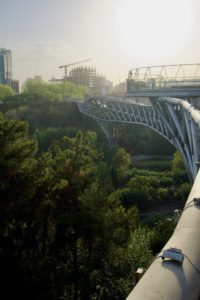
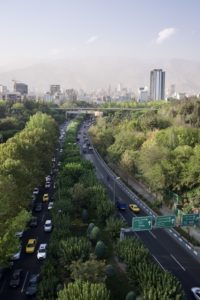
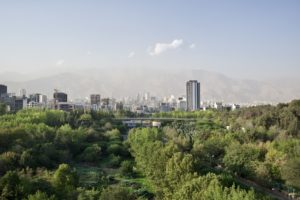
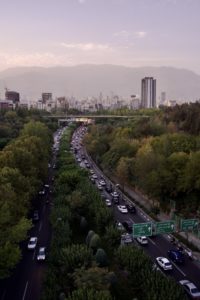
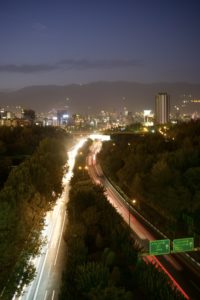
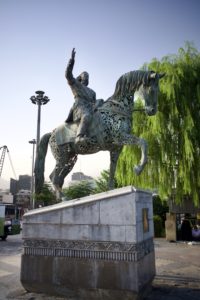
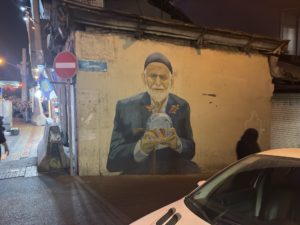
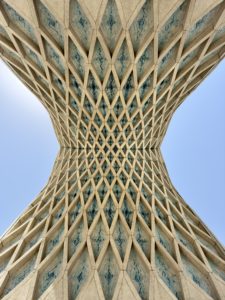
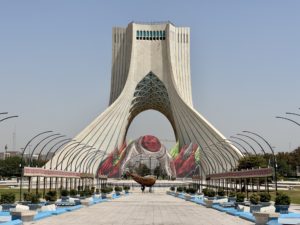
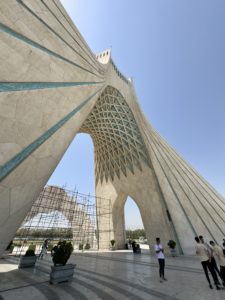
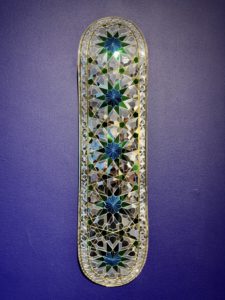
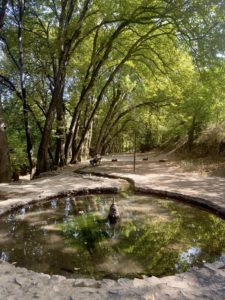
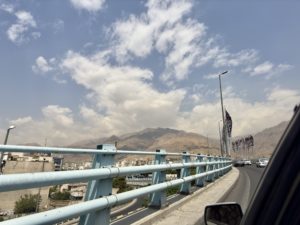
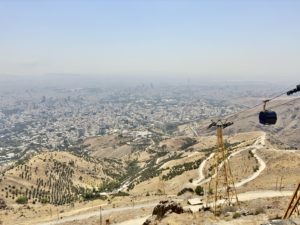
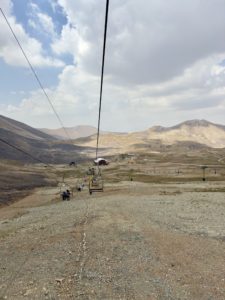
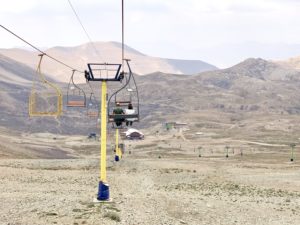
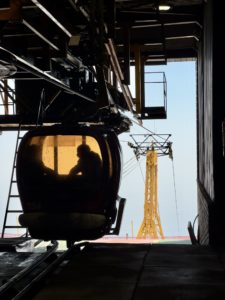
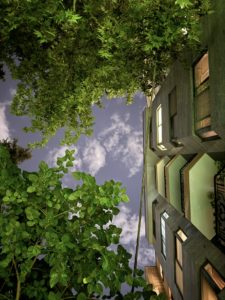
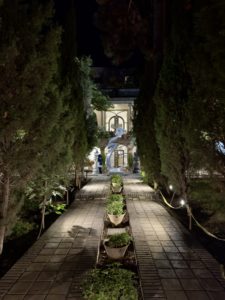
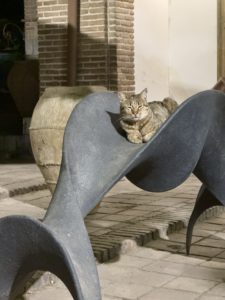
Leave a Reply